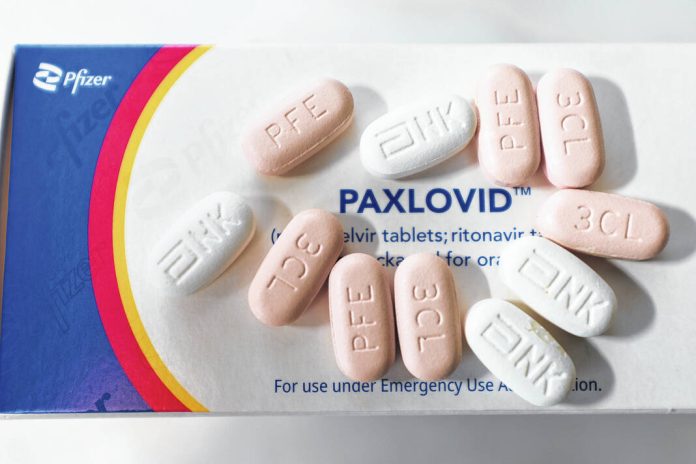Evangelical minister Eddie Hyatt believes in the healing power of prayer but “also the medical approach.” So on a February evening a week before scheduled prostate surgery, he had his sore throat checked out at an emergency room near his home in Grapevine, Texas.
A doctor confirmed that Hyatt had COVID-19 and sent him to CVS with a prescription for the antiviral drug Paxlovid, the generally recommended medicine to fight COVID. Hyatt handed the pharmacist the script, but then, he said, “She kept avoiding me.”
She finally looked up from her computer and said, “It’s $1,600.”
The generally healthy 76-year-old went out to the car to consult his wife about their credit card limits. “I don’t think I’ve ever spent more than $20 on a prescription,” the astonished Hyatt recalled.
That kind of sticker shock has stunned thousands of sick Americans since late December, as Pfizer shifted to commercial sales of Paxlovid. Before then, the federal government covered the cost of the drug.
The price is one reason Paxlovid is not reaching those who need it most. And patients who qualify for free doses, which Pfizer offers under an agreement with the federal government, often don’t realize it or know how to get them.
“If you want to create a barrier to people getting a treatment, making it cost a lot is the way to do it,” said William Schaffner, a professor at Vanderbilt University School of Medicine and spokesperson for the National Foundation for Infectious Diseases.
Public and medical awareness of Paxlovid’s benefits is low, and putting people through an application process to get the drug when they’re sick is a non-starter, Schaffner said. Pfizer says it takes only five minutes online.
It’s not an easy drug to use. Doctors are wary about prescribing it because of dangerous interactions with common drugs that treat cholesterol, blood clots, and other conditions. It must be taken within five days of the first symptoms. It leaves a foul taste in the mouth. In one study, 1 in 5 patients reported “rebound” COVID symptoms a few days after finishing the medicine — though rebound can also occur without Paxlovid.
A recent JAMA Network study found that sick people 85 and older were less likely than younger Medicare patients to get COVID therapies like Paxlovid. The drug might have prevented up to 27,000 deaths in 2022 if it had been allocated based on which patients were at highest risk from COVID. Nursing home patients, who account for around 1 in 6 U.S. COVID deaths, were about two-thirds as likely as other older adults to get the drug.
Shrunken confidence in government health programs is one reason the drug isn’t reaching those who need it. In senior living facilities, “a lack of clear information and misinformation” are “causing residents and their families to be reluctant to take the necessary steps to reduce COVID risks,” said David Gifford, chief medical officer for an association representing 14,000 health care providers, many in senior care.
The anti-vaxxers spreading falsehoods about vaccines have targeted Paxlovid as well. Some call themselves anti-paxxers.
“Proactive and health-literate people get the drug. Those who are receiving information more passively have no idea whether it’s important or harmful,” said Michael Barnett, a primary care physician at Brigham and Women’s Hospital and an associate professor at Harvard, who led the JAMA Network study.
In fact, the drug is still free for those who are uninsured or enrolled in Medicare, Medicaid, or other federal health programs, including those for veterans.
That’s what rescued Hyatt, whose Department of Veterans Affairs health plan doesn’t normally cover outpatient drugs. While he searched on his phone for a solution, the pharmacist’s assistant suddenly appeared from the store. “It won’t cost you anything!” she said.
As Hyatt’s case suggests, it helps to know to ask for free Paxlovid, although federal officials say they’ve educated clinicians and pharmacists — like the one who helped Hyatt — about the program.
“There is still a heaven!” Hyatt replied. After he had been on Paxlovid for a few days his symptoms were gone and his surgery was rescheduled.







